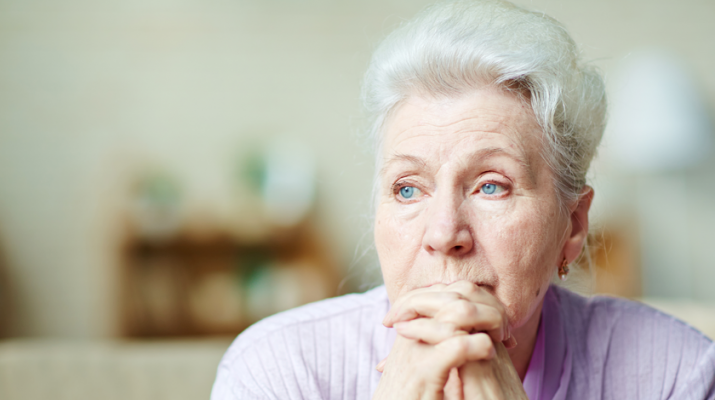Mental issues affecting senior population are largely overlooked
By Deborah Jeanne Sergeant
More than 15 percent of adults aged 60 and older experience mental health disorders, according to the World Health Organization. Many of those don’t receive proper treatment for conditions such as depression and anxiety.
“Depression is both under-diagnosed and undertreated in primary care settings,” the World Health Organization states on its website. “Symptoms are often overlooked and untreated because they co-occur with other problems encountered by older adults.”
Locally, that rings true as well.
“Anxiety and depression are very overlooked in older adults,” said physician Az Tahir, who practices holistic integrative medicine at High Point Wellness in Syracuse.
He said as an example, depression and dementia can overlap and be both misdiagnosed. Plus, some older adults don’t express their mental state accurately — few health care providers ask about it during visits.
“We find many times that patients will look OK, but when we do questionnaires on depression, we find that depression is present,” Tahir said.
Mental health issues are different from temporary adjustment to aging. For example, the American Psychiatric Association states that depression’s symptoms last two weeks or longer. An occasional feeling of sadness or grief from loss is different.
“When an older adult is experiencing a loss or death of a loved one, people say, ‘I’d be depressed too’ but don’t see it as something that can need attention,” said physician Sharon Brangman, chief of the Department of Geriatrics at Upstate University Hospital.
She added that one reason it’s overlooked is that older adults can present different symptoms of depression, perhaps not openly crying but feeling confused, lacking energy and struggling to focus.
Young people experience depression, anxiety and other mental health issues, yet their age isn’t blamed for their conditions. But older adults may be more prone to mental health issues because of their life stage and the life changes that often come at that stage and they should be given access to the services provided by a mental health psychologist so they can deal with those issues properly.
People with lifelong mental health issues may find that the medication that worked well in their 40s and 50s isn’t working as well as it used to, since the body’s ability to metabolize medication decreases with age. Or, they may need medication to address physical health issues that affect the efficacy of their mental health medication.
“Now Medicare doesn’t really cover psychiatric issues,” Brangman said. “Older adults may have trouble paying for these services or finding a mental health professional who accepts Medicare. It was really meant to take care of problems ‘from the neck down’ not mental health issues.”
Many older adults possess fewer resources that support good mental health, such as a network of nearby loved ones, the ability to exercise vigorously, overall good physical health and purposeful, engaging activity. Life changes such as retirement, loss of peers to death and relocation, encroaching physical limitations, and age-related physical issues all affect mental health.
Susan Hartman Brenizer, licensed marriage and family therapist practicing in Fayetteville, encourages older adults and their care providers to review medication and receive a thorough exam by a physician trained in older adult issues.
She said that although older adults may be more at risk for depression, “anxiety usually gets lower as we get older,” Brenizer said. “We find ways to cope and we’re not as anxious in life because of experiences.”
Less obvious symptoms of depression could include fatigue, sluggishness and lack of interest and motivation. But since some of these can indicate physical health issues, a medical evaluation can be very helpful.
“People who really fare well in older age have some grit to them,” Brenizer said. “Mental health issues can hide behind actual health issues. We might see an older parent saying, ‘I’m too tired to do my chores’ or ‘I’m too tired to make a full meal for myself. I’m just going to eat cereal.’ It can mean ‘I’m depressed’ or ‘I’m lonely.’ Are they too tired and that’s related to a health issue like a thyroid disorder or autoimmune disease? Or do they not see the use in moving forward?”
Brenizer thinks that one of the top causes of mental health issues for older people is loneliness, which can also turn into lack of purpose and lower well-being. She encourages older adults and their loved ones to stay better connected, both virtually and in person and look for reasons to get out such as joining a group activity or club.
Consulting with a health care provider for screening and possible referral to a psychologist can also help.

